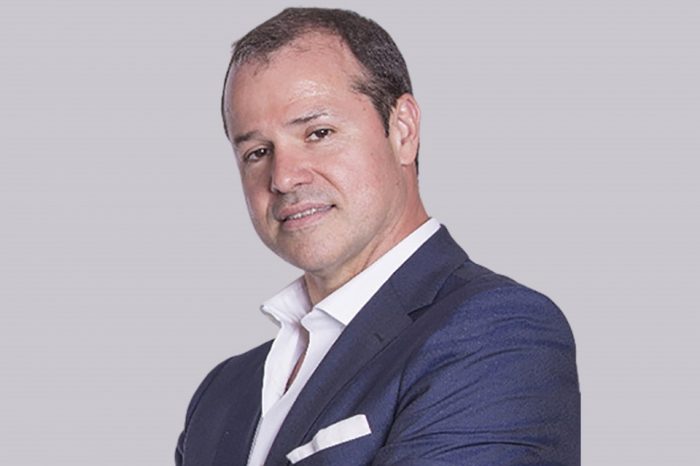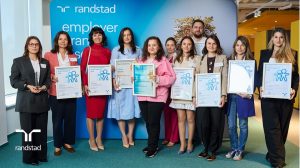Mihaela Maranca, Country Manager, Randstad Romania: Redeploying talent has become a priority for many companies

Business as usual or the resetting of the entire business structure? Making the best of the lessons learned in 2020 and turning it into the business growth’s drivers in 2021? Envisioning a company structure built for people? Enablement of wellbeing, safety initiatives and multi-leveled and hierarchy-flexible communication conduct?
Mihaela Maranca, Country Manager, Randstad Romania answered to the Outsourcing Today’s interview and addressed the plans, the core values and the actual enablers for business growth that mark the beginning of 2021.
TRUST, AGILITY, STRONG MINDSET – these are the three values we saw flourishing in our team, in 2020, and we will take power from in 2021
What do you think will be the main business drivers for business growth in your company 2021?
We plan to keep our leadership position on the Romanian market, bringing the best staffing, recruitment and HR alternative solutions from Randstad group and raising the bar of our local team to champion recruitment consultants.
We will continue to provide along the whole year essential data and trends to Randstad Romania partners (HR Directors, decision makers), so that they can rely on them when making strategic decisions. Report data regarding job satisfaction, the likelihood of an employee to change jobs, various trends and developments impacting the HR and recruitment as well as employer branding, via our major event Randstad Employer Brand Research 2021, expected to be released in June
We believe that real business connections are not made only by data and algorithms. Especially after a pandemic, they require empathy, communication, and instinct. Human instinct. In a technological world, it is the human footprint that makes the difference. This is our credo and I believe it is strong enough to sparkle meaning and self-leadership in each of my colleagues.
Will we assist to a Great Reset-oriented strategy in business or returning to business-as-usual?
There will be a mix. From the workforce point of view, as Randstad Workmonitor Report, December 2020 edition, shows, workers want time in the office, if not for the social interaction then for a distraction-free workspace. And then there are the perks. Some businesses – beside an abundance of office space – are coaxing workers to return with an assortment of benefits, such as commuting cost reimbursement, free meals and even on-site childcare. The preferred arrangements for employees, in 2021, are 1. a hybrid work schedule that involves some days in the office and other days at home; 2. flexible work hours to better juggle home and professional life. A small portion of respondents (11% in Eastern Europe) still long for being full time in the office. The same number of respondents prefer to work from home all the time.
What is the flag-ship project of 2020 in your company?
The digital platform that quickly allowed us to conduct major recruitment projects for our clients, working from home, in the same flawless, high-standards that define our brand here and all over the world.
What kind of workspace culture & values is to be consolidated in your company in 2021?
“If you want to go quickly, go alone. If you want to go far, go together,” says an African proverb. Community is one of the winning concepts in 2021. A few years ago, we embarked on the fulfilling path of giving back to our community and I expect that this culture of giving to be even more visible this year among my colleagues, which are not only amazing professionals, but also dedicated citizens. In this concern, we began this year strong, with educational projects and collaborations developed together with the University of Bucharest and other important academic institutions.
What is a manager’s role and skills in order to maintain and enhance a team’s cohesion?
As Randstad studies show, regarding the work habits of the two youngest generations in the workforce, Gen Z employees place even greater value on regular feedback than millennials. A manager should nurture their professional growth by providing regular input, taking into consideration that both generations want employers to listen to their ideas and suggestions. Companies should build a culture that encourages open and continuous manager and peer feedback. Managers should foster the power of their and their senior colleagues’ experience, developing mentoring programs, which are especially important to ensuring a cohesive workforce.
What kind of skills and capabilities need to be improved in your team in 2021?
We can offer an interesting insight regarding skills and capabilities needed to be improved in companies, in general, due to data offered by Randstad Workmonitor Report, December 2020 edition. The key skills in 2021 are the ones that support people to enable speed through better decisions and faster course corrections based on what they learn. They are about digital speed, ready to reinvent capabilities, data-driven decisions, and customer support. As companies are pushed to accelerate their digital transformation, talent must learn to upskill quickly to remain relevant in a transformed economy.
With so many jobs lost this year, redeploying talent has become a priority for many companies. This can only be possible through comprehensive efforts to reskill redundant workers. Even for those who remain employed, upskilling and reskilling are critical to having them contribute to an effective workforce and ensure they are employable in the future. Our data show that 34% of the Eastern Europe workforce is struggling with acquiring new skills needed during, and, I might say, after the pandemic.
Just to give you a short example, early on during the pandemic, it became clear that workers in some sectors were going to be affected much more severely than others. For instance, the travel industry essentially came to a halt in March. While some airlines quickly shed staff, others found a way to prepare their workers for different careers. Scandinavian Airlines, for instance, quickly trained cabin staff members to become assistant nurses, enabling many to find work outside of travel. Malaysia Airlines has also launched a reskilling program aimed at redeploying pilots, flight attendants and other customer-facing roles. How this should be done is a question many organizations are grappling with, and our survey showed that most workers believe updating the skills of the workforce should be a shared responsibility.













